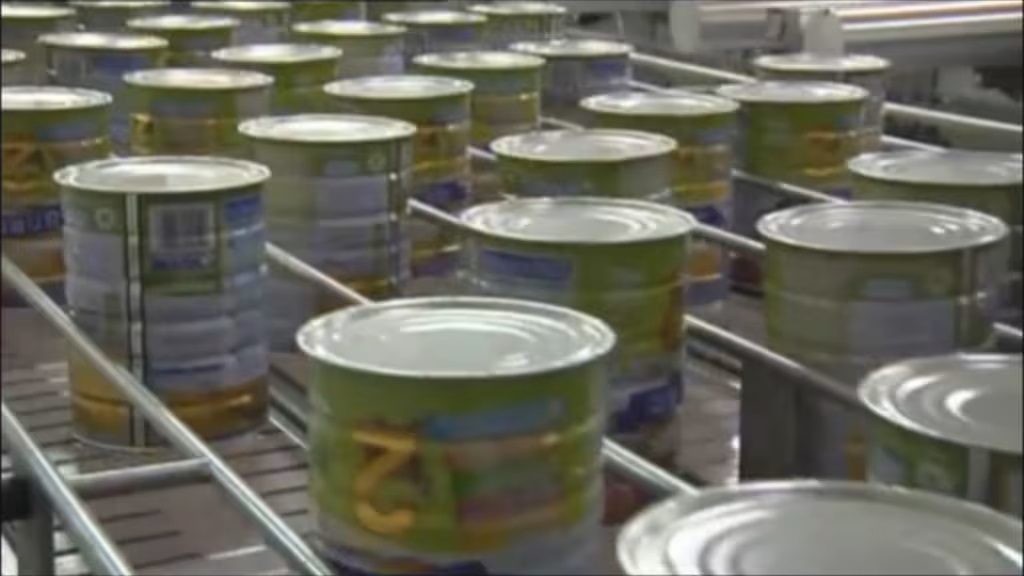
The Government has decided to opt out of a joint Australia-New Zealand infant formula standard, Food Safety Minister Andrew Hoggard said.
Hoggard had until today to decide whether to sign up to the new standards developed by Food Standards Australia and New Zealand.
Infant formula is one of New Zealand’s most heavily regulated products. From wording to colour, every part of it must meet strict rules.
However, the current standard was more than 20 years old.
The new standard would add new controls on what statements manufacturers could make about their products, and also remove specialist formula off supermarket shelves, to be only available in pharmacies or via direct source or healthcare professionals.
Under proposed trans-Tasman standards, perceived added benefits would no longer be able to be put on the front of tins — in line with an international code to restrict the promotion of formula and promote breastfeeding as best, where possible.
The proposed standards were more than 400 pages long, 11 years in the making, with 36 public reports released for comment, five consumer studies and 40 stakeholders workshops held.
The new standard had been opposed by manufacturers, and the decision means New Zealand would continue to follow the existing standard for now.
“After discussion with Cabinet, Cabinet has decided not to adopt the Australia New Zealand joint infant formula standard,” Hoggard said, in a statement.
“New Zealand sought a review of the new labelling requirements, but my Australian colleagues were not in a position to support it. As a result, we will now implement a New Zealand standard over the next five years.
“So long as infant formula is safe and the claims on labels are not misleading, consumers should be allowed to make their own informed choices.
“We were only wanting modifications to two parts of the standard that relate to restrictions on labelling and do not suit the New Zealand context. The vast majority of the standard is good and supported by industry.
“The Government remains committed to the continued success of the Joint Food System and working towards food standards harmonisation.”
‘This was a tough but correct decision’ — industry
The move was welcomed by Danone, which had the Aptamil and Karicare brands. It had said the new standard could put its operation in New Zealnd in jeopardy.
It believed New Zealand’s export products would become unattractive and would make its operation in this country unviable.
“Opt-out was the only decision that protects parent and caregiver access to important information and specialised infant formula in supermarkets,” Danone’s Maria Venetoulis said.
“This was a tough but correct decision from the Government. We recognise the pressure the Minister was under when New Zealand was outvoted at the bilateral meeting last month.
“Today’s decision recognises the integrity of New Zealand’s infant formula exports to long-standing and valuable Asian markets. It protects New Zealand’s ability to keep the parts of the proposal that are supported by evidence and are internationally aligned.”
‘Disappointed’ midwives ‘strongly’ supported new standards
The NZ College of Midwives said in a statement, following the decision: “The College strongly supports the adoption of the new infant formula marketing standards, and we are disappointed with the news that New Zealand has chosen to opt out.
“Parents and whānau using infant formula need accurate information about infant feeding. Misleading labelling on infant formula products can result in parents purchasing inappropriate products for their baby or buying more expensive products that make unsubstantiated claims about benefits.”
The college also said industry information about products could mislead parents into thinking that common infant feeding challenges can be resolved by using “special” commercial milk formula.
“Claims that products are linked to ‘benefits’ such as reduced colic, or increased infant and young child IQ have proved to be very successful industry marketing strategies.”
The college said parents can make informed choices only when presented with accurate information.
“The Government has a public health obligation to ensure parents have access to impartial infant and young child feeding information free from commercial influences. Controls on what statements industry make about their products – on the tins, and on digital media, would have represented a commitment on behalf of the Government to infant and child health”
‘Not that simplistic’ — Hipkins supports opting out
Labour Leader Chris Hipkins said he though it was a good idea that New Zealand opt out of the standard.
“I think it actually highlights one of the risks of this Government’s approach of saying, ‘well we should just adopt Australia’s regulatory regime’.”
He said regulatory reform in New Zealand should “not be that simplistic”, likening it to New Zealand approving medications because they have been approved in Australia.
“This is a good example of why we should maintain our own ability to set regulations when that’s in New Zealand’s best interest.”
You can now read the most important #news on #eDairyNews #Whatsapp channels!!!
🇺🇸 eDairy News INGLÊS: https://whatsapp.com/channel/0029VaKsjzGDTkJyIN6hcP1K

























